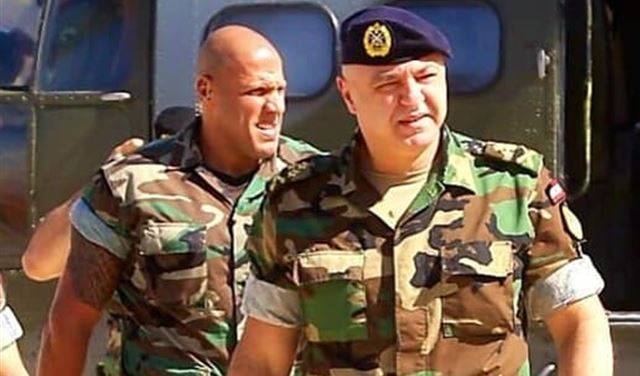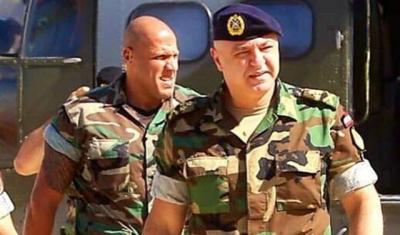It is natural for the visit of Army Commander General Joseph Aoun to Qatar last weekend to carry presidential implications, as it comes at a presidential timing and with his name circulating as one of the serious candidates for the presidency. Additionally, Doha plays a role in the Lebanese file. However, discussions about the presidency between Qataris or other external players involved in the presidential file with the Army Commander do not require an official visit or a public meeting. Such discussions are usually conducted behind the scenes and preferred to be handled without "media fanfare" that would unleash analyses, so the "situation doesn't burn," especially since the Army Commander has not officially announced his candidacy for the presidency. His election requires internal consensus first to avoid being challenged in front of the Constitutional Council, as the constitution stipulates that any first-class state employee must resign two years prior to their presidential election. Moreover, this internal consensus also requires international "blessing" or settlement, and the picture of such has not yet crystallized. Neither has internal consensus been achieved, nor has internal presidential dialogue begun, nor have external settlements or agreements taken a path toward a solution.
Regarding General Joseph Aoun's visit to the Qatari capital, Doha, last Saturday, it was limited to one day, during which he met with Qatari Deputy Prime Minister and Minister of Foreign Affairs Sheikh Mohammed bin Abdulrahman Al Thani and Major General (Pilot) Salem bin Hamad bin Aqil Al Nabit, Chief of Staff of the Qatari Armed Forces. According to a statement issued by the Army Command, the discussions focused on "cooperation relations between the two countries' armies and ways to continue Qatari support for the Lebanese Army to help it overcome current difficulties."
Informed sources on the visit assert that it focused on two matters: thanking Qatar for its assistance to the army and the Army Commander's request for the Qatari side to continue supporting the military institution, particularly the financial cash support for military personnel. Additionally, he carried a new urgent request, which is to supply the army with fuel, as the army's fuel reserves are running low and need replenishment to keep its machinery operational for required patrols and missions. These sources confirm that the agenda of General Joseph Aoun's visit to Doha did not include any political or presidential item, and the Qatari side promised the Army Commander they would try to assist in securing fuel.
While some consider this visit "presidential" based on the fact that Qatar invited the Army Commander at this timing—following its reception of the leader of the "Free Patriotic Movement," MP Gebran Bassil, amid discussions about a French-Qatari role concerning the presidency—it's worth noting that this invitation came after General Aoun expressed his desire to visit Doha to thank the Qataris for assisting the army and because he had new requests. The Qatari state welcomed this desire and extended an invitation to the Army Commander for his visit.
This is the scope of the visit to Qatar, according to the same sources, and the Army Commander did not wish to assign any other dimension to it, even opting not to attend a match in the World Cup and returning directly to Beirut. However, regardless of the actual content and objectives of General Joseph Aoun's visit to Doha, which remain solely in his purview, it is not the only indicator of the effort to find a "solution" for bringing the Army Commander to the presidency. Although this effort has not yet materialized or been decided, and all presidential scenarios remain on the table—most likely indicating that the end of the vacuum has not yet arrived—there are four capitals interested in the presidential file, according to concerned political entities: Washington, Paris, Cairo, and Doha. These four capitals desire the Army Commander as president because they consider him, amid the division among the Lebanese and the existing balance of power, the only figure who represents a common ground among all.
However, this does not mean that continued support for the military institution translates directly into presidential backing. The ongoing Qatari assistance to the army, which began before the presidential timing, stems from international concern for stability in Lebanon and the belief that the military institution is a guarantee for maintaining whatever remains of security and political stability amid the collapse. Qatar has previously been entrusted with performing positive and assisting roles in Lebanon at various junctures, including before 2006, through the "Doha Agreement" in 2008. As an Arab-Gulf state, it is considered the most capable of playing a role with all of the parties in Lebanon, having open lines of communication with all internal entities. Thus, it plays a presidential role alongside Paris, where the French and Qataris are attempting to overcome obstacles and presidential hurdles, working in their own way to "produce" a settlement leading to the election of the Army Commander as President of the Republic.




